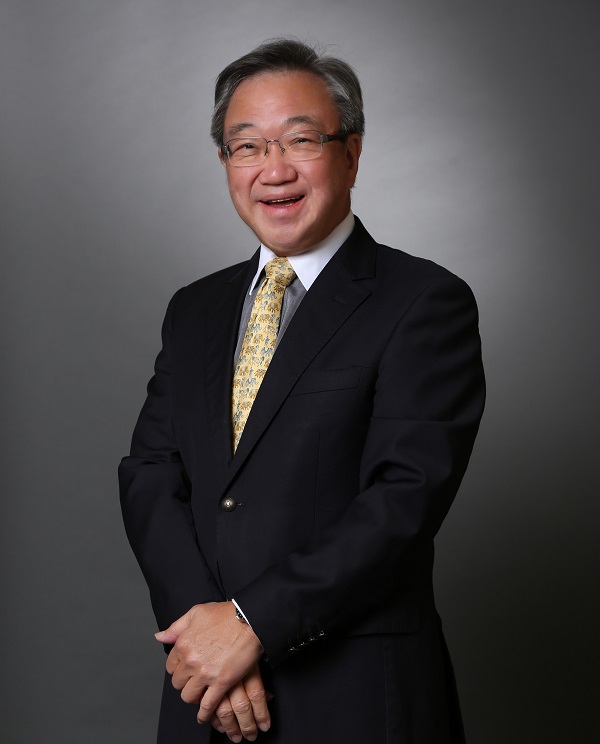SMA is proud to have Dr Loo Choon Yong (LCY) as this year's SMA Lecturer. Dr Loo the executive chairman of Raffles Medical Group (RMG). He is also the chairman of JTC Corporation and Singapore's Non-Resident Ambassador to the Republic of Poland. He was also previously the deputy chairman of the Action Committee for Entrepreneurship, a public-private collaboration to promote entrepreneurship in Singapore; a member of the Government Economic Review Committee (ERC) from 2001 to 2003; and Chairman of ERC's Healthcare Services Working Group.
SMA News is glad for this opportunity to find out from Dr Loo more about him and the topic he will be delivering during the SMA Lecture on 4 November 2017.

Why should Singapore healthcare be internationalised? What benefits are there to the local practice and population?
LCY: Singapore is a small country with only 5.5 million citizens and residents. The public healthcare sector is well resourced and well financed, providing 80% of inpatient care and 20% of outpatient care, of which much is substantially subsidised. This is great welfare for our citizens, especially those less able to afford private care.
As for healthcare organisations in the private sector, they have the alternative of growing into the region in order to achieve size and scale. Besides growth, diversification of an organisation's investments and risks also makes strategic sense.
In addition, as the organisation delivers quality healthcare to more communities abroad, the depth of its clinical and managerial expertise will be enhanced. Clinicians can expect to encounter diseases and conditions not commonly found in highly urbanised Singapore, and usually at later stages of presentation. All these will widen and deepen the experience of the organisation's clinicians – to the benefit of patients at home.
When Singapore healthcare organisations expand into other countries, they bring to the local patients their brands, and hopefully their operational excellence and high standards of professionalism and care. Best practices can also be shared with the local healthcare organisations, professionals and healthcare managers. Many good and well-paid jobs will be created for the local population. In this way, the distant host countries will benefit a fair bit from such investments by Singaporean healthcare organisations as well.
How is the Singapore brand of healthcare perceived overseas?
LCY: Many people in the region look to Singapore as a very well-managed country with strong governance and high standards of professional services. They generally also perceive the medical care available in Singapore to be ethical, professional, consistent and well regulated. They know clearly that when they need to receive blood transfusion for surgery here, the blood is safe and free from any infectious diseases.
However, they are also aware that Singapore is a relatively expensive place to seek care in. The Singapore dollar is strong and getting stronger over time, relative to their native currencies.
Do locals perceive Singapore healthcare differently?
LCY: Singaporeans may grumble, but most know that they get great, safe and professional care in Singapore. Those who opt to receive care from the public healthcare institutions also know that they are getting great value for their money as their bills are substantially subsidised by the Government.
Could you tell us more about the RMG, which has since evolved into an integrated healthcare provider caring for patients in 13 Asian cities? What is the impetus for RMG's overseas expansion? What do you think are the key success factors?
LCY: RMG is made up of physicians, nurses and healthcare managers committed to using their experience, training, learning and gifts for the benefit of all our patients. We are, as a group, continuously striving to put our patients' safety and well-being above the financial and short-term interests of our shareholders, with the blessing of our shareholders.
Our impetus to expand overseas lies in our shared belief that we can bring the Raffles brand of compassionate team-based healthcare to more communities in the region as we scale up and grow our organisation.
The strong alignment to our shared core values among the 380 like-minded multi-specialty physicians, 800 nurses and 200 healthcare managers, is the most important critical success factor in our journey over the past 40 years.
Our adherence to strict strategic, professional, financial and execution discipline has helped us to grow smoothly and purposefully.
What are your hopes and dreams for Singapore healthcare?
LCY: I sincerely hope that more physicians, nurses and healthcare managers will commit themselves to putting their patients first in everything they do. In this way, foreign patients who come to Singapore to receive medical care, as well as those who seek care from Singapore healthcare organisations overseas, will receive what they need according to the science of medicine.
In this way, patients served, as well as their families, will find their health and lives improved. The collective reputation of Singapore healthcare organisations and physicians, nurses and healthcare managers will then be enhanced.
Aside from work, are there any sports or hobbies that you pursue in your spare time?
LCY: I play tennis regularly to keep fit and I play golf for fun with my good friends. I read widely for my work and for my own education and improvement.